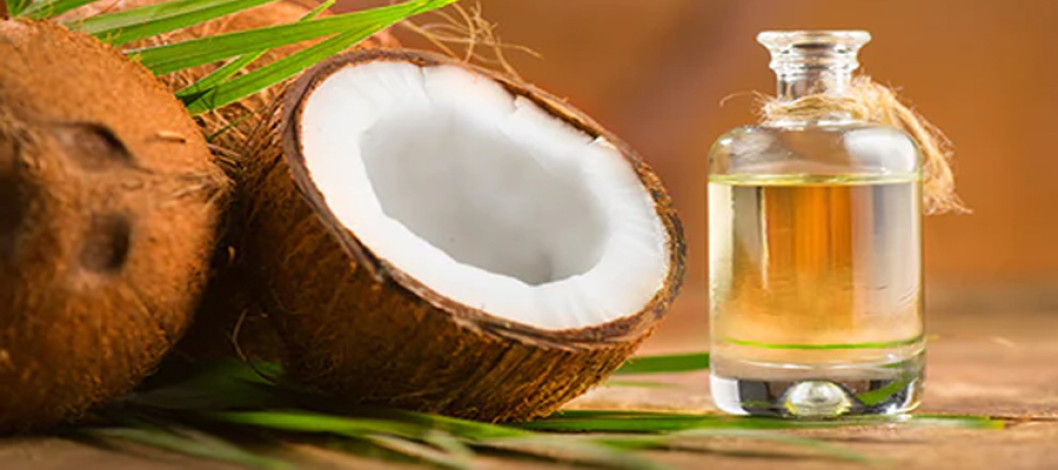
File Photo
Coconut oil is widely available in Bangladesh, offering a variety of options, from traditional local brands to premium imported organic varieties. Coconut oil is widely used in Bangladesh for cooking, skin care, and hair care because of its versatility and health benefits. As a versatile commodity, coconut oil plays an important role in the culture and daily life of Bangladesh. Although its use is widespread, the industry faces challenges related to production and quality, but there is also an opportunity for growth through technological advancements and government support. Prices vary depending on the type, brand, and quality, with organic and extra virgin options being more expensive. Here is a brief summary:
Price Range:
Regular coconut oil: ৳100–৳500 for 200–1000 ml.
Organic/extra virgin: ৳400–৳1780 for 200–1000 ml (e.g., Ceylon Naturals 1000 ml at ৳1780, RiBANA Organic 200 ml at ৳400).
Popular Brands: My Organic BD, Ashol, Panash Food, Green Harvest, Khaas Food, Ceylon Naturals, Nutripure, RiBANA, Vitacare.
Types:
Virgin/Extra Virgin: Cold-pressed, unrefined, retains natural flavor and nutrients, ideal for skincare, hair care, and low-heat cooking.
Refined: Higher smoke point, suitable for high-heat cooking like frying.
Availability:
Local markets, grocery stores, and online platforms like Daraz, Rokomari, Cellsii, Shwapno, Khaas Food, and Chaldal. Fast delivery options in Dhaka, Chittagong, Sylhet, and nationwide.
Quality Tips:
Choose organic/virgin oil for maximum benefits; avoid low-quality oils mixed with chemicals. Check for certifications (e.g., BSTI, USDA, EU).
Note: "Extra virgin" is a marketing term with no standard definition for coconut oil; focus on virgin vs. refined.
For specific needs (e.g., hair care), Nutripure is highly rated for affordability and quality. Vitacare’s refined oil is ideal for cooking high-heat dishes. Shop at reputable sources like Rokomari or Daraz for competitive prices and reliable delivery.
Culinary Uses:
*Coconut oil is a key ingredient in many traditional Bangladeshi dishes, providing a distinct flavor and richness.
*It's used for frying, sautéing, and as an ingredient in curries and sweets.
*Its high saturated fat content gives it a firm texture at room temperature, making it suitable for various cooking methods.
Hair Care:
*Coconut oil is a popular choice for hair nourishment, helping to moisturize, strengthen, and add shine to hair.
*It's often applied as a pre-shampoo treatment or as a leave-in conditioner.
Traditional Medicine:
Coconut oil has been traditionally used for its medicinal properties in Bangladesh, including treating skin ailments and promoting overall well-being.
Industry and Production:
*Coconut oil production in Bangladesh is a cottage industry, with many small-scale producers.
*The quality of coconut oil can vary depending on the extraction method used.
*Dry processing involves drying coconut meat (copra) and then pressing it to extract the oil.
*Wet processing uses coconut milk and can yield virgin coconut oil, which retains the distinct aroma and taste of coconut.
*Refined, bleached, and deodorized (RBD) oil is also produced, often from copra, and is commonly used for cooking and other applications.
*The Bagerhat district is known for its coconut oil production, and efforts are being made to develop the industry through technological advancements and government support.
Challenges and Opportunities:
*Pests like the rhinoceros beetle and red palm weevil can affect coconut palm cultivation and oil production.
*There is a need for better farming practices, including planting high-yielding varieties, to increase production.
*The industry can benefit from training for workers and providing long-term incentives for producers.
*Increased domestic demand and potential for export also present opportunities for growth.
*The coconut oil market in Bangladesh is projected to grow, with increasing consumption expected by 2026.
Conclusion:
Coconut oil is a valuable resource in Bangladesh, deeply embedded in the country's cultural and culinary traditions. While the industry faces challenges, there is a growing awareness of the need to improve production methods, enhance quality, and ensure sustainable practices. By addressing these issues and embracing technological advancements, the coconut oil industry in Bangladesh can contribute significantly to the country's economy and the well-being of its people.
-SZK
Comment Now